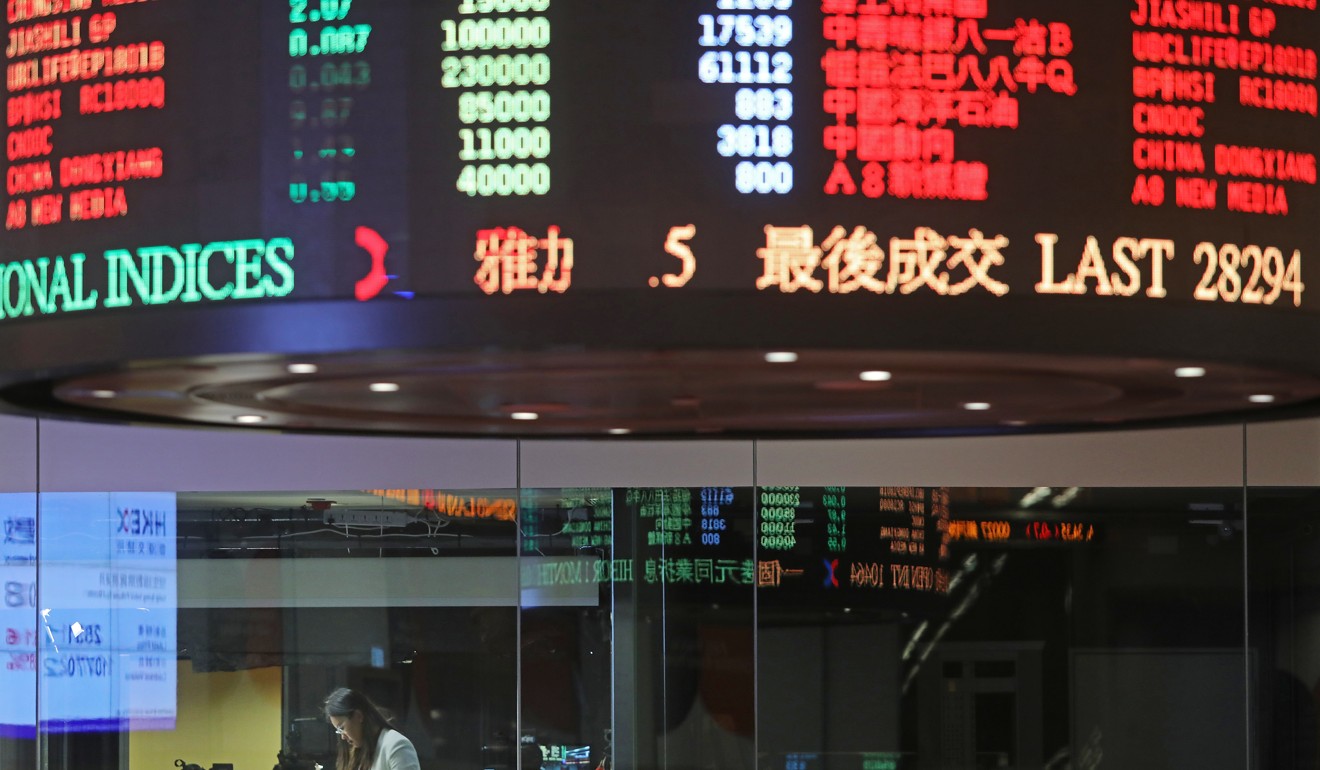
Why investors are pulling out US$4.8b from Hong Kong ETFs
Demand for Hong Kong ETFs has been lagging, no thanks to an unfavourable regulatory environment, limited ETF choice and low product understanding
Exchange-traded funds (ETFs), listed securities which track a basket of stocks and favoured by investors for their lower costs and high transparency of the type and weight of stocks owned, have seen an explosive growth in the global financial world.
Hong Kong however, has bucked the trend.
Demand for Hong Kong ETFs has been lagging due to an unfavourable regulatory environment, the limited variety of ETFs available and relatively lower product understanding. To the extent that investors have pulled out US$4.8 billion from stock ETFs in Hong Kong so far this year, compared to inflows of US$262.8 billion in the US and US$38.3 billion in the whole of Asia-Pacific, according to Bloomberg data.
BlackRock and Deutsche Asset Management also delisted their China sector funds in Hong Kong this year. The funds had failed to gather enough assets.
“There is a lot of misunderstanding of the liquidity of the ETFs. However, we still see the market growing at a healthy pace with more educational programmes introduced to clients to help them understand ETFs,” said Linda Luk, Asia managing director of retail & intermediary business at Vanguard Investments Hong Kong. The US investment firm has US$4.7 trillion of assets under management globally as of September 30.
Yet, this is not say that active funds – where investment managers would run analysis to select company stocks – have delivered a stellar performance, compared to their passive counterparts including ETFs.
As a gauge for the past five years, 74 per cent of global active funds had underperformed the S&P Topix 150 benchmark in Japan, 55 per cent had underperformed the S&P BSE 100 in India, and 88 per cent had underperformed the S&P 500 in the US, according to S&P Dow Jones Indices.

Hong Kong’s lagging demand for ETFs would have been in part, due to the commission-based model where banks or other distributors receive higher fees and are incentivised to sell active funds over ETFs.
There is a lot of misunderstanding of the liquidity of the ETFs. However, we still see the market growing at a healthy pace ...
In contrast, Australia and the UK’s ban of the commission-based model had led financial advisers to choose low-cost and highly liquid products to create investment portfolios for their customers.
Meanwhile, the development of the financial technology sector and this year’s landmark decision by US index provider MSCI to include yuan-denominated stocks into its Emerging Markets Index may give a boost to ETFs in the city.
Last week, local start-up Premia Partners launched the first “smart beta” exchange-traded funds for mainland shares in preparation of the MSCI’s move. By using big data for investment analysis, “smart beta” strategies are fast growing, creating low-cost and efficient portfolios.
The ETFs were also the first to trade through the Shanghai and Shenzhen Stock Connects instead of the qualified foreign institutional investor (QFII) and the renminbi qualified foreign institutional investor (RQFII) schemes, and seen as a catalyst for the city’s ETF market.
“We want global investors to come to Hong Kong to buy the ETFs from this region, or China ETFs, which will exhibit the best liquidity, best performance instead of going to the US to buy these, which do not even have the same time zone for trading,” said Yan Pu, Asia head of portfolio review at Vanguard Investments.

